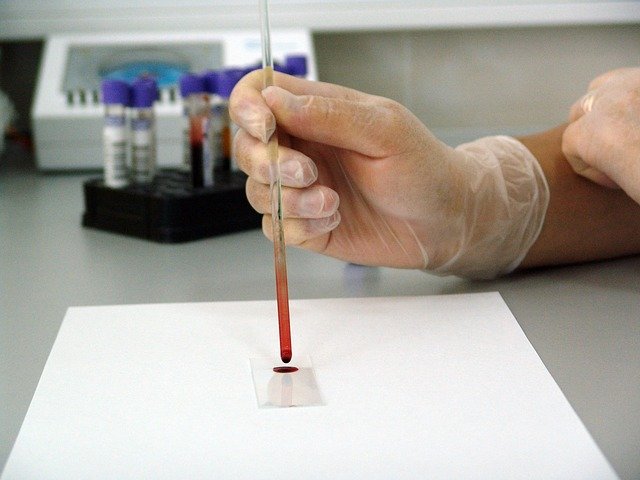
In a new study, researchers at the Hebrew University of Jerusalem develop a new biological drug to treat acute leukemia.
Acute myeloid leukemia is one of the most aggressive cancers.
While other cancers have benefitted from new treatments, there has been no encouraging news for most leukemia patients for the past 40 years.
Leukemia produce a variety (and a high quantity) of proteins that together provide leukemic cells with rapid growth and death protection from chemotherapy.
Currently, most of the biological cancer drugs used to treat leukemia target only individual leukemic cell proteins.
However, during “targeted therapy” treatments, leukemic cells quickly activate their other proteins to block the drug.
The result is drug-resistant leukemic cells which quickly regrow and renew the disease.
In the present study, the new drug developed by the team functions like a cluster bomb.
It attacks several leukemic proteins at once, making it difficult for the leukemia cells to activate other proteins that can evade the therapy.
Moreover, this single molecule drug accomplishes the work of three or four separate drugs.
This reduces cancer patients need to be exposed to several therapies and to deal with their often unbearable side-effects.
But the most important result is the new drug’s ability to eradicate leukemia stem cells.
This has long been the big challenge in cancer therapy and one of the main reasons that scientists have been unable to cure acute leukemia.
The cure rate is 50% for lab mice in the current study.
BioTheryX recently bought the rights to this promising drug from HU’s technology transfer company Yissum.
Together with the research team, they are now applying for FDA approval for phase I clinical studies.
Professor Yinon Ben-Neriah and his research team conducted the study.
The finding is published in the scientific journal Cell.
Copyright © 2018 Knowridge Science Report. All rights reserved.
Source: Cell.



